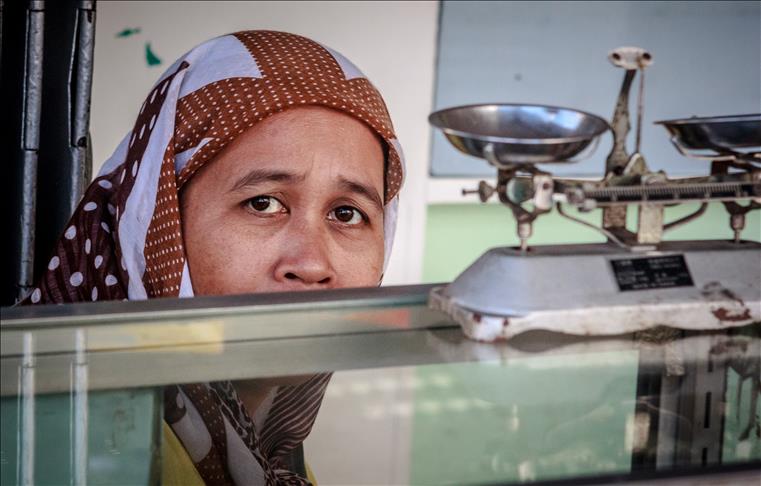Philippines’ Muslim south celebrates Eid holiday
Muslims perform prayers in open fields as officials call for spreading Islamic teachings against violence, intolerance.

ZAMBOANGA
Muslims in the southern Philippines flocked to perform prayers for the Eid al-Adha holiday Saturday as officials called on worshipers to spread Islamic teachings against violence and intolerance.
Political leaders in Mindanao, the second largest and southernmost major island in the Philippines that has been exposed to a decades-old armed conflict, urged locals to pursue peace and interfaith solidarity in the region, home to indigenous Moro Muslims, Christians and lumad natives.
Autonomous Region in Muslim Mindanao Governor Mujiv Hataman said in a statement, “In context, if applied to present situation, this religious event tells us to 'slaughter' for good [the] evil practices that destroy our relationship with each other as Muslims and our relationship with non-Muslims.”
Open-field congregational prayers were held at 36 towns in Maguindanao province, while military personnel helped army clerics officiate prayers at their camps.
Col. Melquiades Feliciano, a commanding officer in Tacurong City, even assisted an imam – a Muslim religious leader - in slaughtering a cow as “kurban” - an offering - before dozens of worshipers as part of the holiday tradition.
“It’s nice to see our Christian and Muslim soldiers and the people around come together to help each other make the celebration of religious events like this become successful,” Feliciano said.
Maguindanao Governor Esmael Mangudadatu dismissed stereotypes of Muslim as “extremists” or “war mongers,” explaining that believers should strive to work for harmony with the people around them through prayers, good deeds and religious tolerance.
Capt. Mujib Ladjabuan, an Islamic theologian in the army, said, “Muslims are often construed as terrorists because of the wrongdoings of others that call themselves Muslims, but [wrongdoers] are not Muslims because they don’t practice the teachings on religious tolerance and co-existence with non-Muslims."
Beginning Saturday, Muslims across the world will celebrate Eid al-Adha, also known as the “Feast of the Sacrifice,” which celebrates Prophet Ibrahim’s willingness to sacrifice his oldest son, Ismail.
Muslims who can afford to do so should sacrifice a sheep or share the cost of a sacrificial cow or camel in a ritual commemorating the occasion.
Eid al-Adha is the second of two religious holidays celebrated by Muslims and marks the last day of the Hajj, when millions of pilgrims pour to Mecca and Medina in Saudi Arabia.
Anadolu Agency website contains only a portion of the news stories offered to subscribers in the AA News Broadcasting System (HAS), and in summarized form. Please contact us for subscription options.







